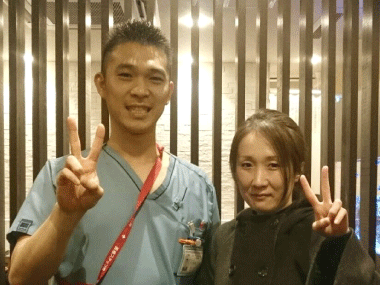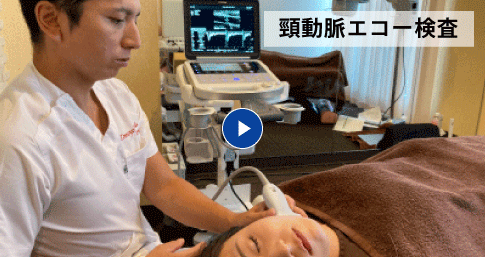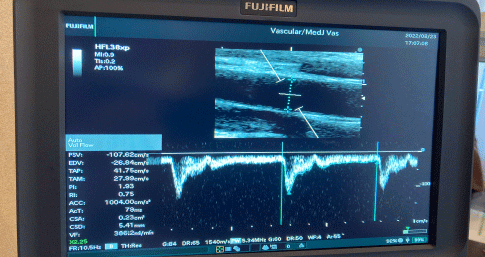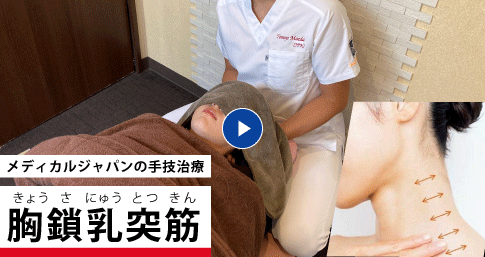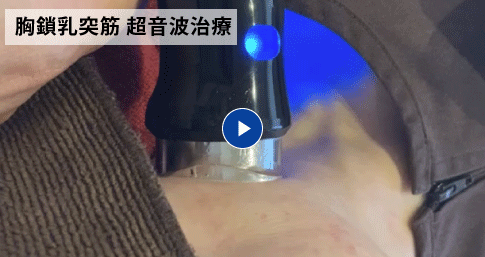Tinnitus
Tinnitus: What is it?
Tinnitus refers to a condition where a person hears various sounds even though there should be no sound around them. Common sounds include low-frequency sounds like hums, buzzes, and whines, as well as high-pitched sounds like beeps, rings, and whines. The volume and frequency of these sounds can vary. In mild cases, the sound may only occur when stress or fatigue has built up or in quiet places before sleep. In severe cases, tinnitus may persist 24 hours a day and can be accompanied by other symptoms, such as an inability to hear external sounds, mental distress, and difficulty in holding conversations.
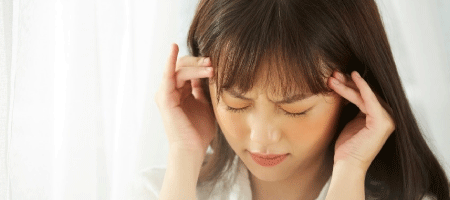
Tinnitus Requires Early Treatment
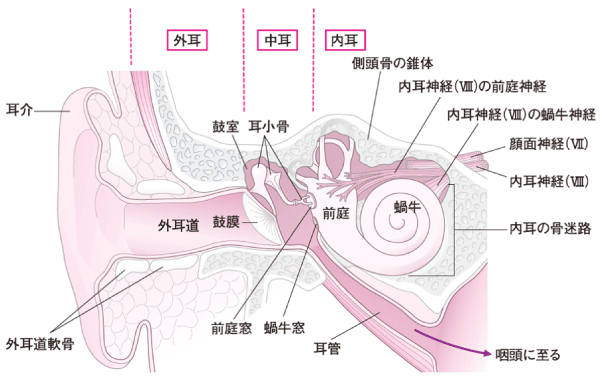
Generally, tinnitus is often accompanied by hearing loss. This common condition can cause varying degrees of stress, ranging from mild discomfort to insomnia, and even depression. Tinnitus is classified into two types: subjective tinnitus, which only the individual can hear, and objective tinnitus, which can be heard by external parties as well.
If tinnitus appears suddenly (acute sensorineural hearing loss), it is important to visit an otolaryngologist early as it can impact the prognosis. Although rare, some types of tinnitus that synchronize with a heartbeat may be caused by tumors or vascular abnormalities, requiring caution.
Tinnitus is experienced by approximately 15-20% of the global population, with more than 30% of people aged 65 and above suffering from the condition. The sounds heard in tinnitus can vary, including high-pitched sounds like “key” or low-pitched sounds like “go”.
How Tinnitus Works
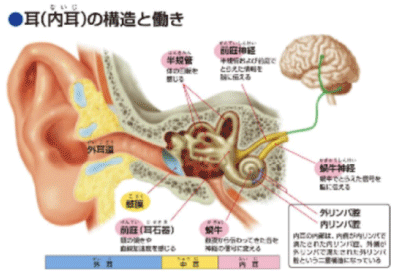
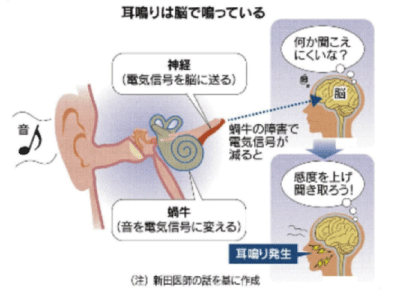
Chronic tinnitus with no clear cause may be related to the functioning of the ears or brain and the individual’s attention. The mechanism behind tinnitus involves damage to the hair cells in the inner ear, which can impair the auditory cortex and sensory and nerve functions in the brain, leading to the onset of tinnitus.
Main Causes
Prolonged mental stress due to work or relationships, as well as physical stress caused by lifestyle habits like lack of sleep or environmental factors like noise, can lead to a disruption of the autonomic nervous system, potentially triggering tinnitus. Dizziness often accompanies tinnitus, creating a vicious cycle where the stress worsens the symptoms.
Sudden loud noises, such as an explosion near the ears or listening to music at high volume with headphones, can cause immediate tinnitus, along with reduced hearing or a feeling of ear fullness. This occurs due to damage to the sensory cells in the cochlea of the inner ear caused by the loud sound or shock. Early treatment may help improve this condition.
Several medications, including antibiotics used for tuberculosis, antipyretics, painkillers, antidepressants, and drugs used to treat diabetes or rheumatism, as well as diuretics, can cause tinnitus by damaging the inner ear. This is especially true for individuals with kidney disorders, as medications may not be adequately excreted, leading to an excess concentration of the drug in the bloodstream, increasing the likelihood of tinnitus.
General Treatment Methods
Medication, Hearing Aid Treatment, TRT Treatment
If middle ear diseases such as chronic otitis media are identified, conservative treatment or surgical treatment will be performed.
For sensorineural hearing loss, Vitamin B12 preparations, circulation improvement agents, etc., are prescribed. If there is no effect after several months of use, traditional Chinese medicine such as Goshajinkigan, Chotōsan, or Shōrei-tō may be prescribed. If stress or other factors are significant, environmental improvements and stress management will be implemented.
Medical Japan’s Oriental Medicine Approach (For cases without hearing impairment)
Autonomic nervous system regulation, improvement of inner ear blood flow
Treatment is applied to acupuncture points and reaction points where there are signs such as tenderness, hardening, or muscle tension around the ear and the posterior neck.
[Prescription Examples]
Around the ear: Ermen, Chōkai, Eifū
Posterior neck: Kankotsu, Fūchi
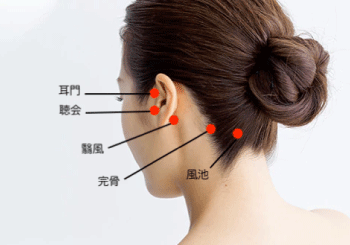
Intervention Examples Only Available at Medical Japan
In many cases, autonomic nervous system dysfunction and blood circulation are related to the causes of tinnitus. There is no clear treatment evidence for symptoms caused by accumulated stresses, which are classified as non-specific complaints. Therefore, at Medical Japan, we use precise information such as high-precision autonomic nervous system diagnostic machines, peripheral blood flow diagnostic machines, vital monitors, and body oxygen saturation measurements. Based on this data, licensed professionals propose tailored treatments such as acupuncture, massage, and nutritional guidance.
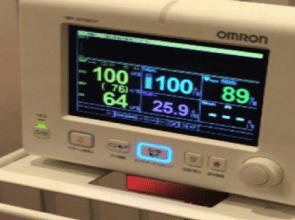
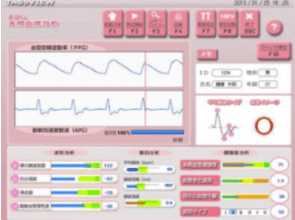
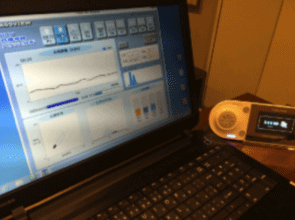
Dizziness itself is a difficult symptom. It can lead to negativity, creating a vicious cycle, and decreasing quality of life (QOL), which can increase various risks. To live a healthy and fulfilling life both physically and mentally, we are committed to being fully supportive as experts. If you’re struggling, please feel free to consult with us.
Medical Japan’s Unique Intervention for Improving Cerebral Blood Flow Related to Tinnitus
(*1) A condition where various symptoms are reported despite medical examinations and tests failing to identify a specific disease.

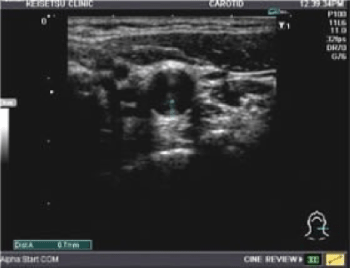
When carotid artery compression occurs, the smooth flow of blood to the brain and auditory organs is disrupted.
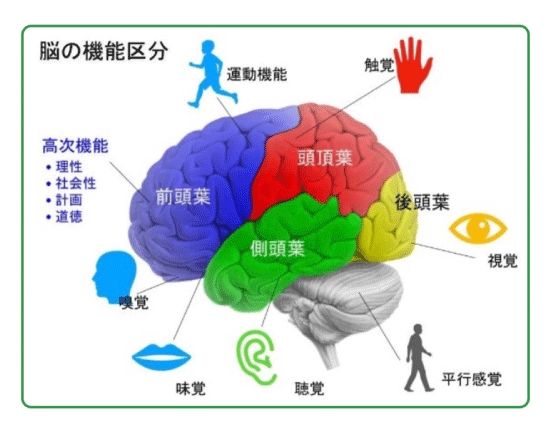
The brain is subdivided into various regions, each responsible for different functions. For example, the cerebral cortex is subdivided into 52 areas due to differences in cell structure. Such functional localization exists throughout the central nervous system, and in the spinal cord, each segment has a body part localization for sensory and motor functions of the hands and feet.
If oxygen supply to the brain decreases, the nutrients to each cell are delayed, which may lead to functional decline.
At Medical Japan, we use a program of echo, ultrasound medical devices, manual therapy, and rehabilitation exercises to work towards improving tinnitus.
2D Echo (Ultrasound Examination) for Testing
We conduct tests using 2D Echo (ultrasound examination). 2D Echo is excellent for observing soft tissues such as muscles, tendons, and ligaments. If the cause of pain is in areas that cannot be observed by X-rays or CT scans, such as trigger points, muscle fibers, ligaments, and tendons, 2D Echo (ultrasound examination) is highly effective.
Manual Therapy Treatment for Sternocleidomastoid Muscle Approach
The neck contains complex muscle and nerve systems, through which large blood vessels that supply the brain with nutrients pass. By practicing breathing techniques and posture correction, we aim to increase the range of motion and improve flexibility. To promote early improvement, we offer personalized counseling, customized treatments, and tailored interventions for each individual.
Ultrasound Treatment for Sternocleidomastoid Muscle Approach
Ultrasound is applied precisely with either non-thermal or thermal effects.
Ultrasound → Increased blood flow to the spinal artery and arterial plexus due to deep heat.
Additionally, we use high-frequency therapy devices and combination ultrasound therapy devices (Astron) to relax muscle tension with high-frequency waves and expect an effect of inhibiting pain transmission.
[Self-Care] Sternocleidomastoid Muscle Care at Home
When performing self-care at home, it is important to follow the following precautions:
※ Changes in effect: If pain increases or new symptoms appear, stop immediately and consult a medical professional.
※ Take your time: It is important to take your time. Rushing may prevent the muscles from properly relaxing and reduce effectiveness.
※ Moderate intensity: Too strong a care intensity can damage muscles. If you experience pain, reduce the intensity or stop.
Rehabilitation Exercises + Breathing Techniques

Balance issues are not only caused by muscle and bone problems but also by tension in the body, which can lead to shallow breathing, decreased metabolism, and be a cause of vague symptoms and chronic diseases. We provide easy exercises that can be done at home with proper guidance.
Prevention Methods and Rehabilitation Programs
At Medical Japan, we use the ICF classification, which is also used by medical institutions, to analyze your living environment and provide personalized treatment tailored to your needs. Tinnitus is not a symptom to be given up on. Let’s talk and start early treatment to improve it.
Supported by Medical Institutions
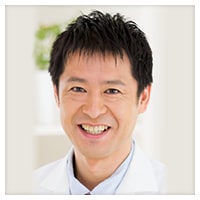
Certified Internal Medicine Specialist by the Japanese Society of Internal Medicine, Cardiologist Certified by the Japanese Circulation Society, Member of the Japanese Society of Hypertension, Certified Diabetes Educator, Certified Occupational Physician, Member of the Japanese Society of Travel Medicine, Certified Specialist in Cardiac Rehabilitation
Nice to meet you, I’m Ken Ikeda from Tachikawa Clinic.
I have been working in the treatment and research of lifestyle-related diseases, such as hypertension, hyperlipidemia, and diabetes, mainly at university hospitals.
Especially, cardiac rehabilitation after treating heart diseases (myocardial infarction, angina, heart failure, aortic diseases) is my life’s work.
Restoring overall body functions, not just heart diseases, is essential for improving our quality of life, and it’s also the kind of medical care we aim for.
By performing rehabilitation with a focus on functional recovery, we aim to improve current conditions and also prevent future diseases.
The treatment provided by Medical Japan, the parent company of Tachikawa Medical Japan, aligns perfectly with the kind of medical care we strive for as doctors.
“To live a high-quality life, health is irreplaceable.”
Health involves being proactive in nutrition, exercise, rest, and treatment, and to avoid getting sick, it’s crucial to maintain a health-conscious lifestyle.
The partnership with Medical Japan marks the seventh year since my previous clinic, and what I admire about them is their approach as part of the medical team, with nationally certified professionals contributing to local community health, while offering massage and acupuncture treatments tailored to each patient’s symptoms and condition.
With recent emphasis on blood flow restriction training, it is a rehabilitation training based on solid evidence, and I believe it has promising potential for future treatment outcomes. I look forward to seeing their future efforts.
I believe that the healthcare provided by Medical Japan is a great support for better health in the community, and I am happy to recommend this company for future collaboration.
*This is an individual’s opinion.
Tachikawa Clinic
2 minutes walk from Tachikawa Station North Exit, open on Sundays, Internal Medicine, Cardiology, Diabetes, Gastroenterology, Allergy, Lifestyle-related Diseases, Vaccinations, Travel Clinic, Smoking Cessation, Health Checkups, Pediatric Care
Website: https://www.tachikawa-cl.com/
References
Voices of Patients Who Visited
